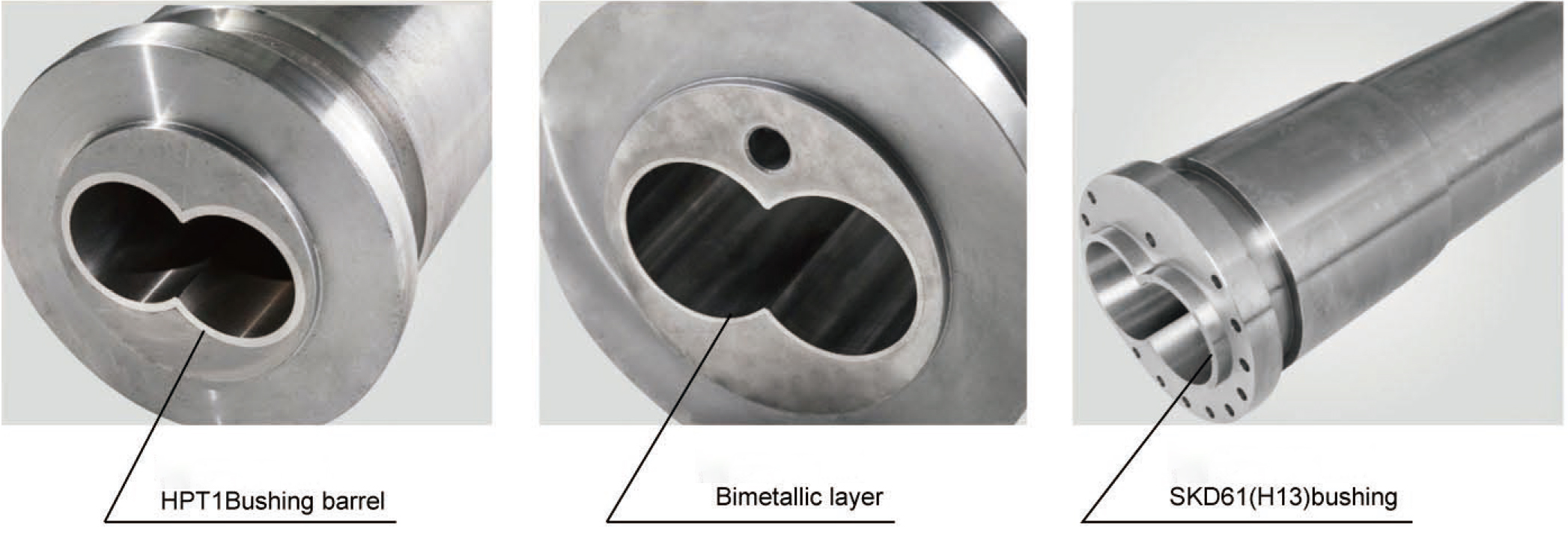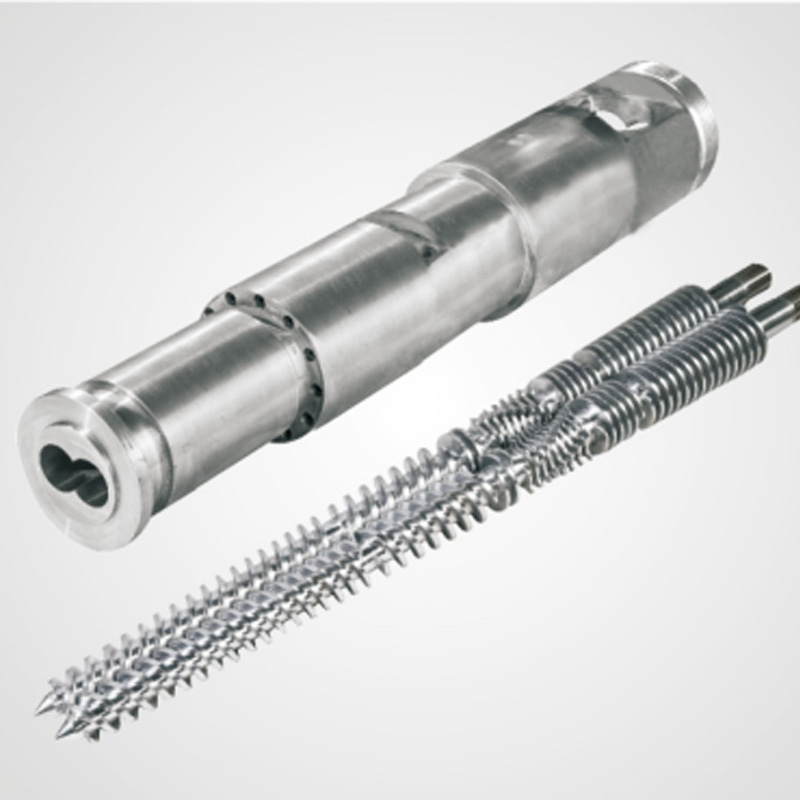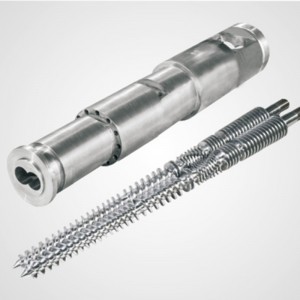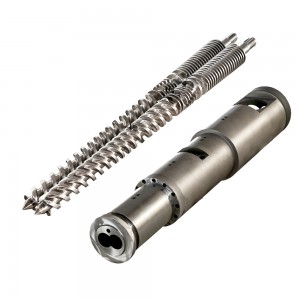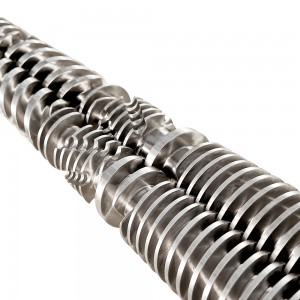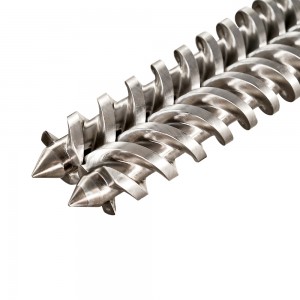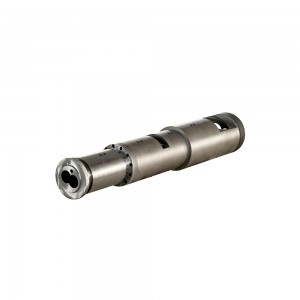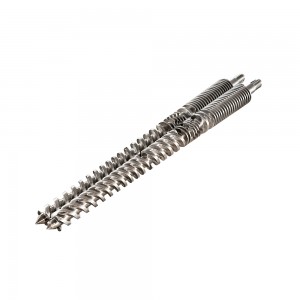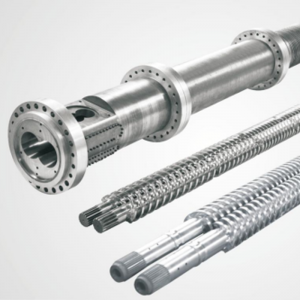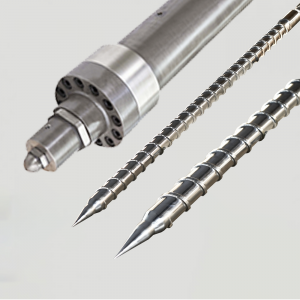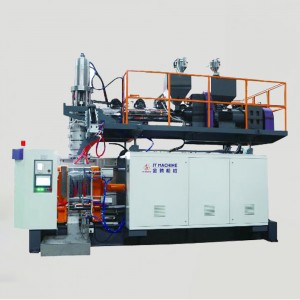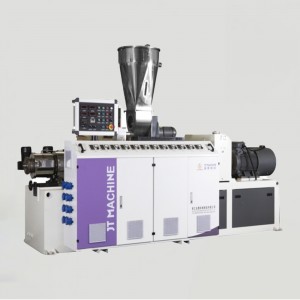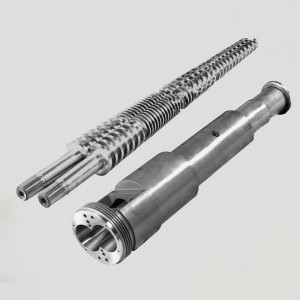Conical twin screw barrel for SPC floor
| Models | |||||||
| 45/90 | 45/100 | 51/105 | 55/110 | 58/124 | 60/125 | 65/120 | 65/132 |
| 68/143 | 75/150 | 80/143 | 80/156 | 80/172 | 92/188 | 105/210 | 110/220 |
1.Hardness after hardening and tempering: HB280-320.
2.Nitrided Hardness: HV920-1000.
3.Nitrided case depth: 0.50-0.80mm.
4.Nitrided brittleness: less than grade 2.
5.Surface roughness: Ra 0.4.
6.Screw straightness: 0.015 mm.
7.Surface chromium-plating's hardness after nitriding: ≥900HV.
8.Chromium-plating depth: 0.025~0.10 mm.
9.Alloy Hardness: HRC50-65.
10.Alloy depth: 0.8~2.0 mm.
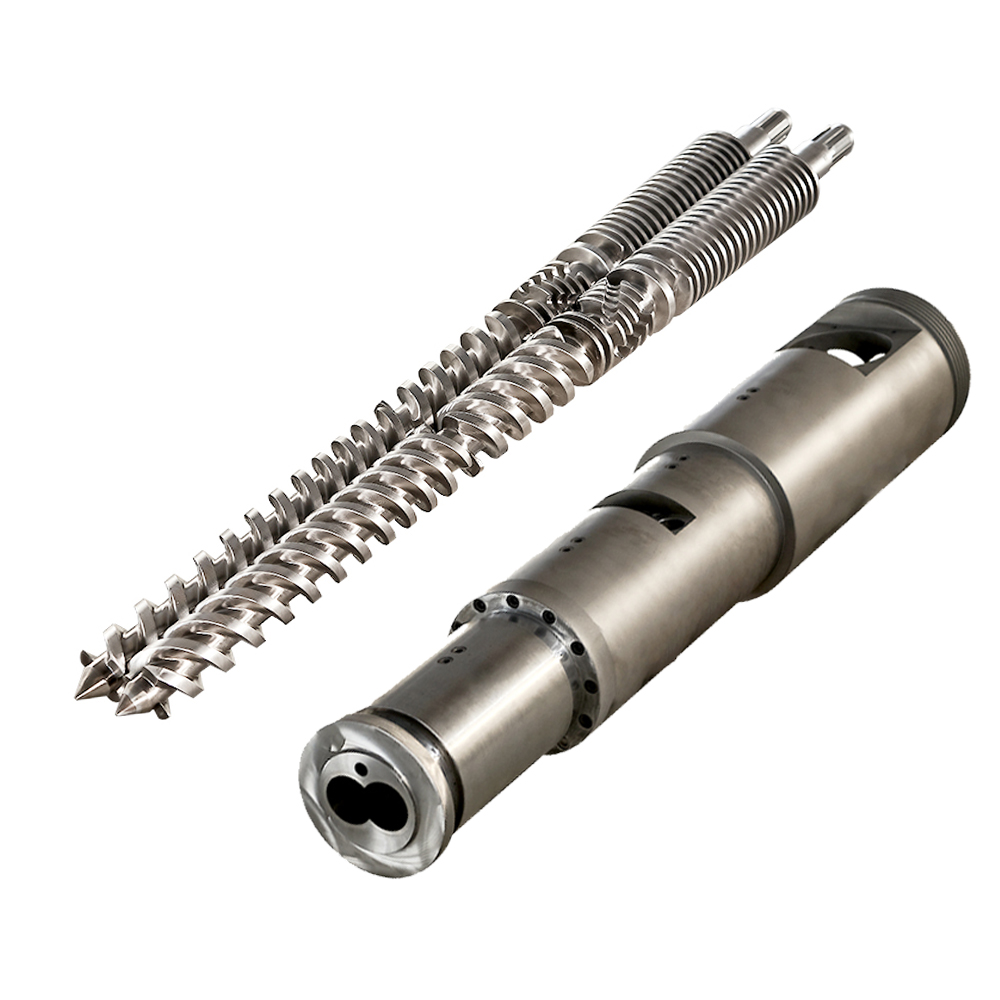
The application of the screw barrel in the field of SPC flooring has several aspects: Material mixing: The screw barrel is one of the important tools for manufacturing the materials required for SPC flooring. It mixes PVC material with other additives (such as plasticizers, stabilizers, etc.) to form the composite material required for SPC flooring. Plasticization: The screw barrel uses high temperature and mechanical force to plasticize the PVC material.
Through the rotating screw, the PVC material is heated and stirred inside the barrel to make it soften and plastic for subsequent molding. Push out: After the plasticizing process, the screw barrel pushes the plasticized material out of the barrel by adjusting the rotation speed and pressure. Through equipment such as molds and pressing rollers, the material is molded into the shape of SPC floor panels. In short, the application of screw barrel in the field of SPC flooring mainly focuses on material mixing, plasticizing and pushing out. It is a key tool in the production of SPC floors, ensuring that the flooring material has the required performance and quality.
